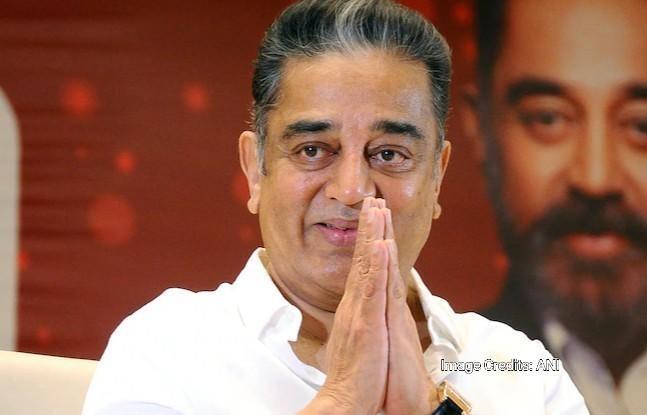
Title: Kamal Haasan Clarifies After Row Over His ‘Kannada was Born Out of Tamil’ Remark
The age-old debate over language origins has once again sparked controversy, this time involving none other than renowned actor-politician Kamal Haasan. In a recent interview, Haasan sparked outrage among Kannada-speaking communities when he claimed that Kannada was born out of Tamil. The statement was met with instant backlash, with many taking to social media to express their discontent.
However, in an attempt to clarify his previous statement, Haasan has recently spoken out, stating that his words were meant out of love and respect for the Tamil language and culture. He also emphasized that he didn’t intend to offend anyone, especially not the Kannada-speaking communities.
In an interview with a leading news outlet, Haasan said, “What I said was said out of love, and a lot of historians have taught me language history. I didn’t mean anything.” He also took a moment to acknowledge his own limitations, stating, “Politicians are not qualified to talk about language, including me.”
Haasan’s statement has been met with a mix of reactions, with some people agreeing with his clarification, while others remain unconvinced. The controversy has also led to some Kannada pro-activists taking to the streets, burning posters of Haasan’s latest film, ‘Thug Life’.
The debate over language origins is a complex and sensitive topic, with each language having its own unique history and cultural significance. While Haasan’s statement may have been intended as a compliment to the Tamil language, it’s clear that it has caused offense among some sections of society.
It’s worth noting that the origins of languages are often shrouded in mystery, and scholars have long debated the exact relationships between languages. While some languages may have borrowed words or grammatical structures from other languages, it’s difficult to pinpoint the exact moment of a language’s “birth”.
Haasan’s statement has also raised questions about the role of politicians in discussing language-related issues. As a public figure, Haasan has a responsibility to be mindful of the language and cultural sensitivities of different communities. While his intentions may have been good, his statement has caused harm and division, and it’s essential that he takes a more thoughtful approach in the future.
In conclusion, Haasan’s clarification has offered some measure of relief, but the controversy is unlikely to fade away anytime soon. As we navigate this complex and sensitive topic, it’s essential that we approach language-related issues with respect, empathy, and a deep understanding of the cultural and historical contexts.






